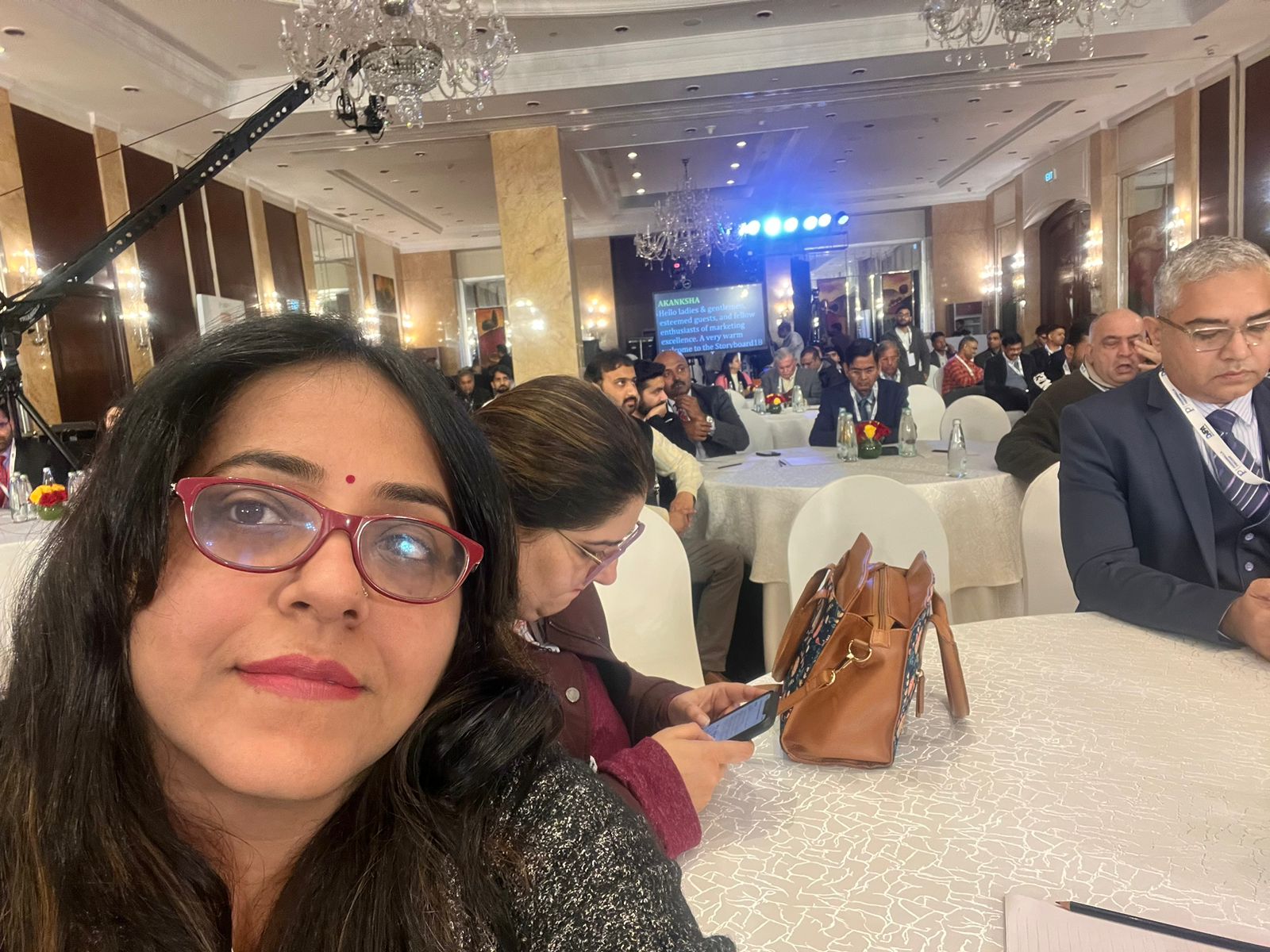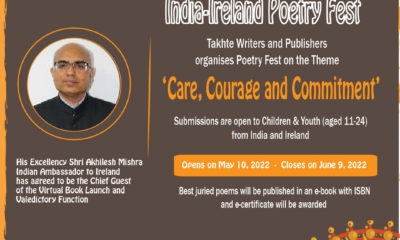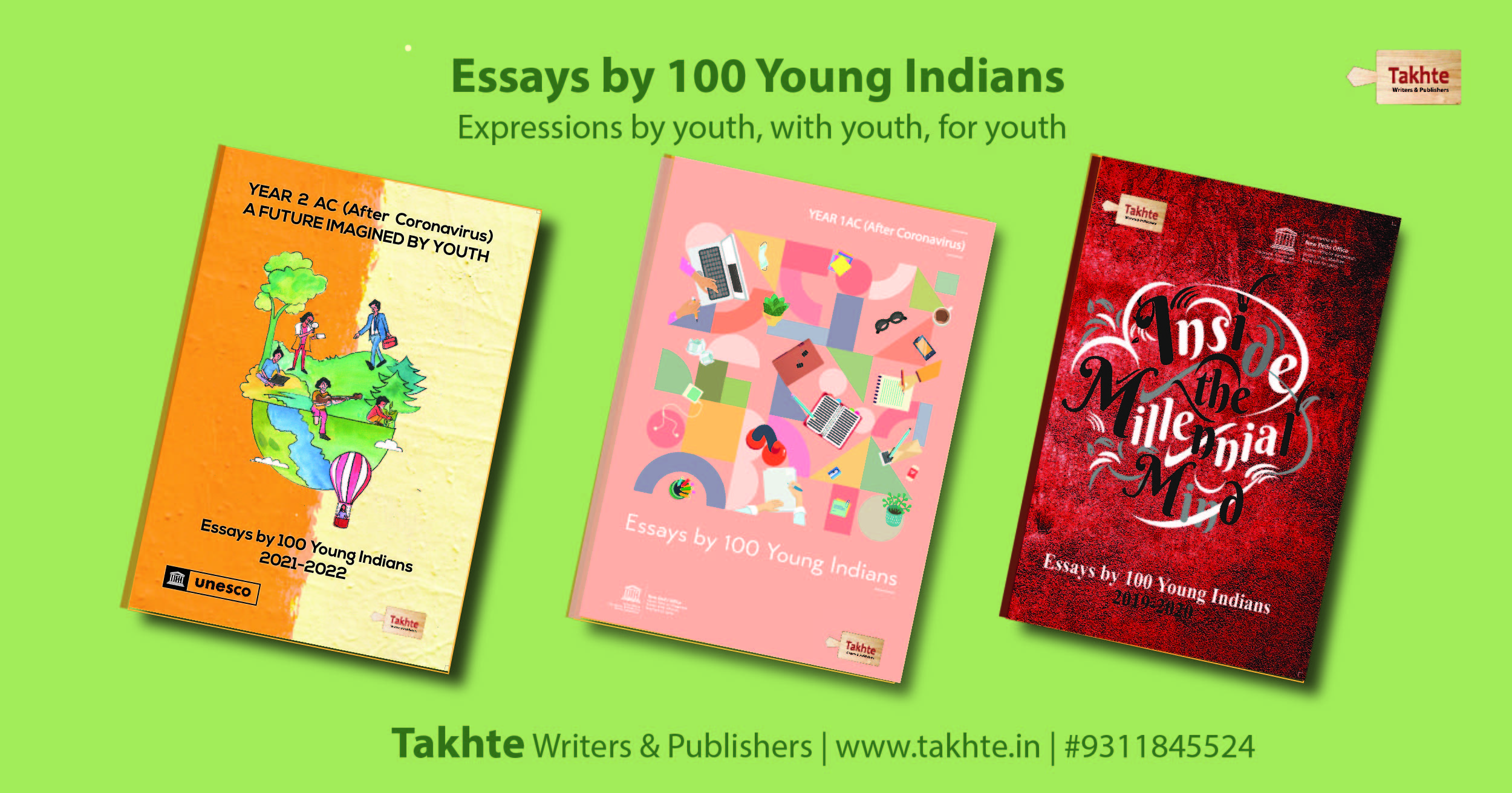Tech
DNPA Conclave and Awards 2024: A Deep Discussion on Digital Transformation

Shivani Kasturia
Head – Takhte Writers & Publishers and VOV
Greetings Readers,
Today, I attended the Digital News Publishers Association of India (DNPA) Conclave and Awards 2024 as a Takhte Writers & Publishers representative. The event took place at Shangrila-Eros in New Delhi. The event provided a distinctive opportunity for media honchos, policymakers, and stakeholders to convene and engage in a profound discourse on the future of digital media amidst the transformative influence of artificial intelligence and the interplay between news publishers.
To provide you with more detailed information, let me first introduce you to the concept of DNPA. It is the leading industry organisation representing the digital divisions of India’s top 18 print and electronic media publishers. Now arises the dilemma of identifying these 18. These are the prominent names of the newspapers and television networks, including Hindustan Times, Dainik Jagran, Dainik Bhaskar, The Indian Express, Malayalam Manorama, Eenadu Television, India Today, Amar Ujala, Zee Media, ABP Network, Lokmat, Times of India, NDTV, Express Network, Mathrubhumi, The Hindu, India TV, and Network 18. The role of DNPA is to advocate for reliable news and protect the interests of the news industry’s development.
As the event progressed, I had the pleasure of listening to Shri Rajiv Chandrasekhar Ji, Hon’ble Minister of State (MoS) for Electronics and Technology. The eloquence of his speech was profoundly uplifting. India’s position has transitioned from primarily a “back office” for the IT industry to a dynamic economy that actively contributes to the digital landscape through innovation. He discussed the technological advancement in India throughout the last decade. “Indian flag, start-ups, and innovation are prominent in artificial intelligence (AI), semiconductors, and web3, indicating a promising future,” he added. He also shared an anecdote- “Upon assuming the role of a minister, I spearheaded a delegation of 30 start-ups to the United Kingdom. Upon my arrival, the High Commission in the UK informed me that the ministers expressed a desire to meet me. Upon arriving at the hotel, I realised that the ministers were interested in meeting with the leaders of the start-ups rather than me”.
“During that period, Boris Johnson, who was serving as the Prime Minister of the United Kingdom, held my hand and inquired about the nourishment provided by Prime Minister Modi to the youth in India, which evidently results in their remarkable talent,” he recounted. He remarked regarding the transformation in India, “This is merely the tip of the iceberg. The upcoming wave of start-ups will be more profound and significantly transformative than the current ones”.
Shri S Krishnan, Secretary, Ministry of Electronics & Information Technology (MeitY), Government of India, shared his insight and asserted, “People are now becoming increasingly aware of the potential threats associated with artificial intelligence and the diverse range of problems it might give rise to. However, upon observing it, you are struck by a few aspects representing a shift in intensity rather than a fundamental transformation. Although many individuals use the phrase ‘change of kind’. It may be considered a degree shift, but in other aspects, it is more accurately described as a change in intensity. Furthermore, our laws are inadequate in addressing all aspects as they need to”.
As the programme folded and lunch was about to start, I was delighted to listen to Shri Anurag Thakur Ji, Minister of Information and Broadcasting. He emphasised the importance of the media sharing the significant advancements in India and worldwide. He urged the media to refrain from indulging in manufacturing news. Mr Thakur emphasised that the actions of the media should not have any negative impact on the country. He further expressed his belief that the Indian media profoundly understands the actualities and diligently broadcasts news with high accountability. However, today, the media’s obligations extend beyond reporting inside the confines of India. Today, internet platforms must emphasise India’s progress, culture, literature, arts, heritage, and positive developments or associations with the nation. The media may propagate this within the country and globally, as it lacks any terrestrial elements. The media has the ability to disseminate the word to any location. “Today, even the owner of a small online platform or a reporter from a remote town may contribute a compelling and noteworthy story that quickly becomes headline news on the television news channel. Thus, they are likewise contributing. “Technology is here to stay, so let us endeavour to optimise its utilisation,” he concluded.
During my study of journalism, we as students, always looked up to Mr. Shekhar Gupta, and after many years, I was delighted to listen to him in a panel discussion. Mr Shekhar Gupta, the Founder of The Print, stated that many individuals who believe our current brand, product, or business would remain unchanged indefinitely are mistaken since it is bound to transform. It was unforeseen that there would be a TV18 or NDTV group at the time of our inception. Several newspapers, such as the Dainik Bhaskar, have emerged in the past 35 years, although many have since declined. Like The National Herald, have ceased to exist. Institutions and products are transient.
He stated, “The notion that everyone is going to decline is absurd.” Media is a little enterprise. Feeling uneasy in a small business is a common and expected phenomenon. The largest news firm in India has a turnover of less than Rs 7-8,000 crore. It is advisable to exercise caution; however, excessive caution might be detrimental.
I remained there till lunchtime, but I had a remarkable day filled with many profound thoughts to take back with me.

-

 Poems3 years ago
Poems3 years agoPoems
-

 Uncategorized2 years ago
Uncategorized2 years agoOnline Elocution Contest
-

 Poems2 years ago
Poems2 years agoIndia-Ireland Poetry Fest
-

 Legal Talks3 years ago
Legal Talks3 years agoCompliances Relating to the Commercialization of Electronic Devices
-

 Legal Talks3 years ago
Legal Talks3 years agoCUSTODIAL RAPE IN LIGHT OF THE MATHURA GANG RAPE CASE
-

 Art & Culture3 years ago
Art & Culture3 years agoThe Lore of the Days of Yore: Significance of History
-

 Short-story3 years ago
Short-story3 years agoBibek’s visit at his friend’s bungalow
-

 Uncategorized1 year ago
Uncategorized1 year agoPotential Navigators of Knowledge (PNK) Young Authors Awards















